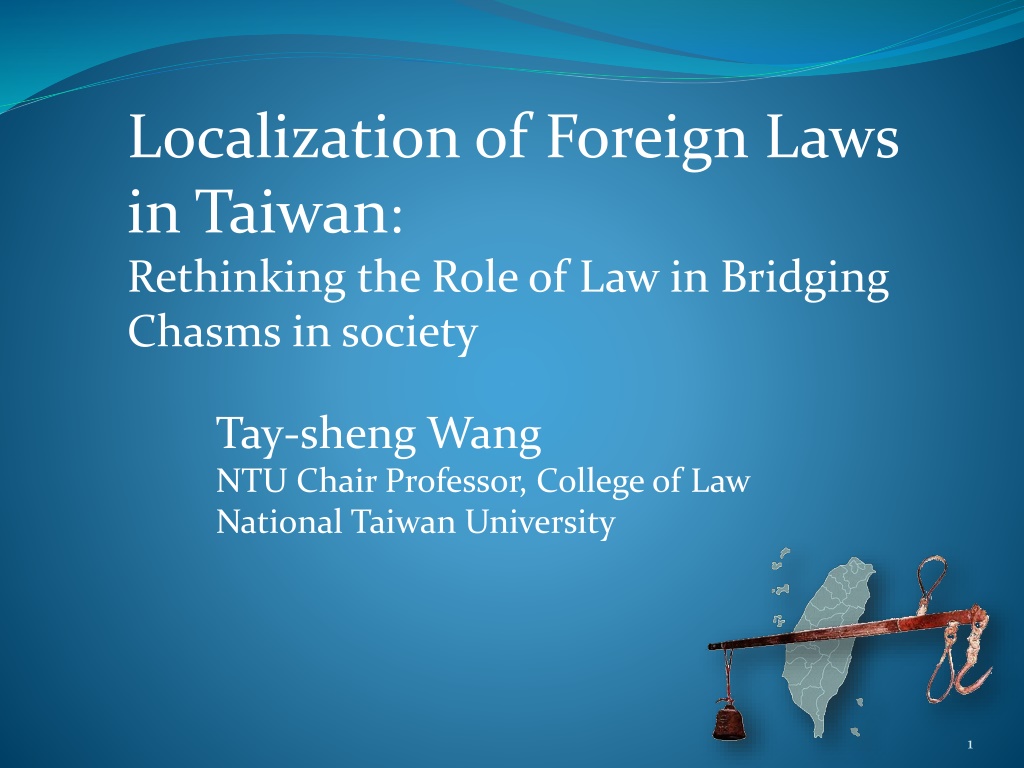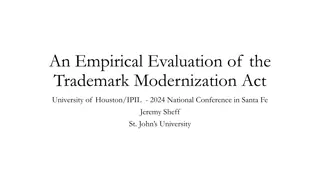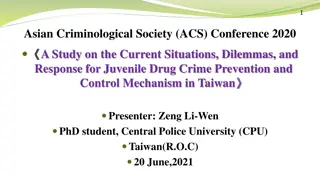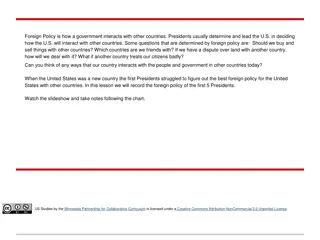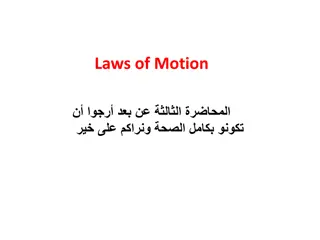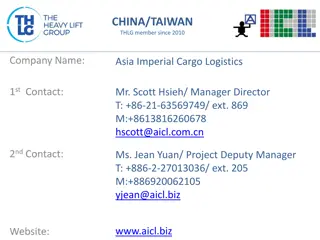Reexamining the Impact of Foreign Laws in Taiwan
The article discusses the historical subordination of Taiwanese law to colonial rule, highlighting the challenges faced in accommodating diverse societal interests. It explores the Japanese colonial administration's influence on legal systems in Taiwan and the gradual shift towards incorporating Western legal elements while neglecting the uniqueness of Taiwanese society. The failure of legal mechanisms to effectively bridge societal divides is analyzed, emphasizing the need for reevaluation in the localization of foreign laws in Taiwan.
Download Presentation

Please find below an Image/Link to download the presentation.
The content on the website is provided AS IS for your information and personal use only. It may not be sold, licensed, or shared on other websites without obtaining consent from the author.If you encounter any issues during the download, it is possible that the publisher has removed the file from their server.
You are allowed to download the files provided on this website for personal or commercial use, subject to the condition that they are used lawfully. All files are the property of their respective owners.
The content on the website is provided AS IS for your information and personal use only. It may not be sold, licensed, or shared on other websites without obtaining consent from the author.
E N D
Presentation Transcript
Localization of Foreign Laws in Taiwan: Rethinking the Role of Law in Bridging Chasms in society Tay-sheng Wang NTU Chair Professor, College of Law National Taiwan University 1
Introduction We always consider that the law should play an important role in accommodating the interests of different segments of society. However, as the case of Taiwan shows, the law does not always serve as a bridge across chasms in society. 2
I. The Law Subordinated to Colonial Rule (1895-1945) The introduction of modern law in Taiwan began under Japanese colonial administration. The Japanese were only a minority in Taiwan, at most 6% of Taiwan s population, but totally controlled the government in colonial Taiwan. The public law in colonial Taiwan always intensified, rather than alleviated, the tension between different ethnic groups in society. 3
As a way of catering to the needs of the local Taiwanese, the Japanese from time to time implemented the idea of following old customs, in Taiwan s civil laws. The first example is the 1904 Civil Disputes Mediation Law. However, the Taiwanese gradually preferred to file a lawsuit in the modern-style court after 1915. 4
Secondly, the colonial law provided that civil and commercial matters involving Japanese were to conform to the Japanese civil and commercial codes but those involving only Taiwanese or relating to the land in Taiwan were to be decided in accordance with Taiwanese old customs. The colonial government had tried to make law for accommodating the interests of Taiwanese and Japanese in colonial Taiwan, but it failed. 5
Since 1923, under a policy of extension of the mainland, The law in Taiwan included more elements of Western individualistic law than before, but the uniqueness of Taiwanese society had been predominately ignored in the law. Indigenous peoples were always governed by the administrative discretion of special policemen. Finally, after the prewar Japanese law strictly suppressed the civil society in Japan during the wartime period (1938-1945), the law of colonial Taiwan inevitably followed this direction. 6
II. The Law under A Part of China (1945-1991) After the defeat of Japan in 1945, China under the administration of the Chinese Nationalist Party (Koumintang, KMT) took over Taiwan on behalf of the Allies. Those Mainlanders, migrating from Mainland China after 1945, primarily in 1949, became the new ruling class in postwar Taiwan. The native Taiwanese must obey a newly introduced legal system which was established for China. 7
Taiwan became a de facto state in late 1949. According to its official law, however, Taiwan was only a province of China, and therefore the national law should not be modified merely for the necessity of Taiwan s society. The native Taiwanese, who constituted a supra- majority in Taiwan, could not participate in deciding legal affairs at the national level. Again, the public law in Taiwan intensified, rather than alleviated, the tension between different ethnic groups in society. 8
III. The Law Reflecting Diversity in Society (1992-present) In the 1990s, Taiwan greatly marched toward a liberal and democratic country. After 1991, popular representatives and administrative chiefs, including the president of the state, were elected by all citizens in Taiwan. The opposition party, the DPP, ended the fifty-five year rule of the KMT in 2000, and then the KMT controlled the central government again in 2008. 9
As a result, the law has already taken civil and political rights of individuals into full consideration because it is possible for legislators to become members of the opposition party and thus need to protect these rights. More importantly, the current legislature in Taiwan has modified the ROC law, initially made for China, to meet the diverse needs in Taiwan s society. In Taiwan, national identity has been one of the most divisive issues. 10
The constitutional revision in 1991 maintained the original declaration that the territory of state included both Mainland China and Taiwan, but recognized that the Taiwan government did not govern Mainland, which reflected the reality. The public opinion on national identity has changed in Taiwan recently, but the constitutional provisions relating to territory has not yet been modified partly because China (PRC) strongly objected this modification. 11
Through the constitutional revisions in the 1990s, indigenous peoples have been regarded as an ethnic group with uniqueness in culture, which should be maintained and promoted in the future. After the democratization of Taiwan in the 1990s, the ROC codes, transplanted from China from 1945 to 1949, have largely been revised, with reference to laws and legal theories of foreign countries; primarily Germany, the U.S., and Japan. 12
Those foreign laws and legal theories which had been transplanted into Taiwan were actually selected for resolving the problems of Taiwanese society. Since 2003, Taiwanese law has to a large extent followed American-style procedure for criminal justice. The technical origin for this legislation, however, is the Japanese criminal procedural law. 13
The codification of the Taiwanese customary law, which failed in colonial days, revived in democratic Taiwan. A popularly-elected legislature tends to satisfy the needs of those people who are already comfortable with their own local customs. 14
The legislation of customs, however, is frequently a product of a value-judgment, as shown in the codification of ancestor worship. In fact, legal ideas received from foreign countries have encouraged Taiwanese to change their own traditions, notably through the revision of the book on family and the book on succession in the Taiwanese civil code. 15
Conclusion Those foreign laws and legal theories which originated in prewar Japan, Republican China, and modern and contemporary Western countries have become important resources for the Taiwanese law to accommodate the interests of different segments of local society. However, it is worthy to note that the complete localization of foreign laws depends on the fact that a liberal and democratic country has been established. 16
